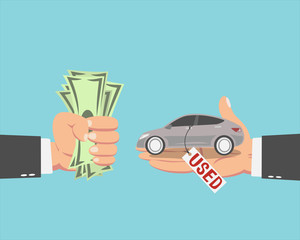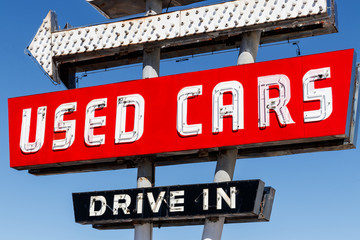Skip to content
Tips for Buying a Used Vehicle
In today’s fast-paced world, owning a vehicle has become an essential part of our lives. Whether it’s for commuting to work, running errands, or embarking on exciting road trips, having a reliable set of wheels can greatly enhance our daily routines. While buying a brand-new car might be a dream for many, the reality is that purchasing a used vehicle can be a smart and cost-effective choice. In this blog, we will delve into the world of buying a used vehicle, exploring the advantages, considerations, and essential tips to ensure a successful purchase.

-
Advantages of Buying a Used Vehicle: When contemplating the purchase of a used vehicle, it’s crucial to recognize the numerous advantages it offers:
a. Affordability: One of the primary reasons people opt for used cars is the significant cost savings compared to buying new. With a used vehicle, you can often find a reliable model with low mileage at a fraction of the price of its brand-new counterpart.
b. Depreciation: Unlike new cars, used vehicles have already experienced the most substantial depreciation. This means that you can avoid the significant value drop that occurs during the first few years of a car’s life.
c. Lower Insurance Costs: Typically, insurance premiums are lower for used vehicles compared to new ones. This can help you save money in the long run, especially if you opt for comprehensive coverage.

-
Research, Research, Research: Before embarking on your quest to buy a used vehicle, thorough research is vital. Take the time to explore different car models, their features, and their reliability ratings. Websites like Edmunds, Consumer Reports, and Kelley Blue Book are excellent resources that provide valuable insights into specific models’ performance, maintenance costs, and resale values.
-
Define Your Needs and Budget: Understanding your requirements and setting a budget is crucial when buying a used vehicle. Consider factors such as the size of the vehicle, fuel efficiency, storage capacity, and safety features. Determine how much you can comfortably spend and consider additional expenses such as registration fees, taxes, insurance, and potential maintenance costs.
-
Vehicle History Report: One of the most critical steps when purchasing a used vehicle is obtaining its history report. This report provides essential information about the car’s past, including accidents, repairs, ownership history, and mileage verification. Services like Carfax and AutoCheck can provide comprehensive vehicle history reports, enabling you to make an informed decision.
-
Inspect and Test Drive: When you find a used vehicle that piques your interest, it’s time to inspect and test drive it. If you’re not well-versed in automotive mechanics, consider seeking the assistance of a trusted mechanic to conduct a thorough inspection. This examination should include checking the engine, brakes, suspension, tires, and any visible signs of wear and tear. Additionally, take the car for a test drive to assess its performance, handling, and overall driving experience.
-
Consider Financing Options: If you require financing for your used vehicle purchase, it’s essential to explore different options. While traditional banks and credit unions are popular choices, you may also consider online lenders or dealerships that offer financing solutions. Compare interest rates, loan terms, and any associated fees to secure the best deal that suits your financial circumstances.
-
Negotiate and Finalize the Deal: Once you have thoroughly inspected the vehicle, conducted a test drive, and are satisfied with its condition, it’s time to negotiate the price. Do some research on the market value of similar vehicles in your area to ensure you’re getting a fair deal. Be prepared to walk away if the price doesn’t align with your budget or the condition of the car. Once you’ve reached an agreement, finalize the purchase
Share This Article, Choose Your Platform!
Page load link



